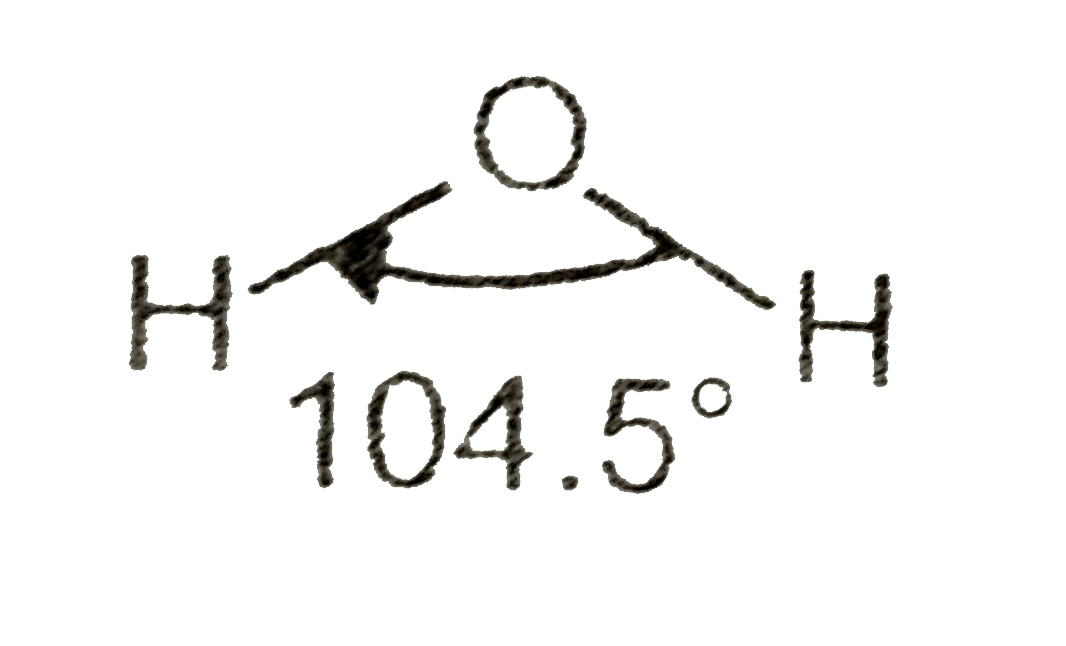Which of the following would have a permanent dipole moment ?
BF3
SiF4
SF4
XeF4
The correct Answer is:B
To determine which of the given compounds has a permanent dipole moment, we need to analyze the molecular geometry and the electronegativity of the atoms involved in each compound. Let's evaluate the compounds step by step.
Step 1: Analyze BF3 (Boron Trifluoride)
- Valence Electrons: Boron has 3 valence electrons, and each fluorine has 1 valence electron. Thus, BF3 has a total of 3 + (3 × 1) = 6 valence electrons.
- Bonding: Boron forms three single bonds with three fluorine atoms, using all its valence electrons.
- Lone Pairs: There are no lone pairs on boron.
- Hybridization: The hybridization is sp².
- Geometry: The geometry is trigonal planar.
- Electronegativity: Fluorine is more electronegative than boron (4.0 vs 2.0). The dipole moments of the three B-F bonds point towards the fluorine atoms.
- Dipole Moment: The dipole moments cancel each other out due to the symmetrical shape, resulting in a net dipole moment of zero. Therefore, BF3 is non-polar.
Step 2: Analyze SiF4 (Silicon Tetrafluoride)
- Valence Electrons: Silicon has 4 valence electrons, and each fluorine has 1 valence electron. Thus, SiF4 has a total of 4 + (4 × 1) = 8 valence electrons.
- Bonding: Silicon forms four single bonds with four fluorine atoms.
- Lone Pairs: There are no lone pairs on silicon.
- Hybridization: The hybridization is sp³.
- Geometry: The geometry is tetrahedral.
- Electronegativity: Again, fluorine is more electronegative than silicon (4.0 vs 1.9). The dipole moments of the four Si-F bonds point towards the fluorine atoms.
- Dipole Moment: The dipole moments do not cancel out due to the tetrahedral shape, resulting in a net dipole moment. Therefore, SiF4 is polar and has a permanent dipole moment.
Conclusion
Among the compounds analyzed, SiF4 has a permanent dipole moment, while BF3 does not.
---
- Valence Electrons: Boron has 3 valence electrons, and each fluorine has 1 valence electron. Thus, BF3 has a total of 3 + (3 × 1) = 6 valence electrons.
- Bonding: Boron forms three single bonds with three fluorine atoms, using all its valence electrons.
- Lone Pairs: There are no lone pairs on boron.
- Hybridization: The hybridization is sp².
- Geometry: The geometry is trigonal planar.
- Electronegativity: Fluorine is more electronegative than boron (4.0 vs 2.0). The dipole moments of the three B-F bonds point towards the fluorine atoms.
- Dipole Moment: The dipole moments cancel each other out due to the symmetrical shape, resulting in a net dipole moment of zero. Therefore, BF3 is non-polar.
- Valence Electrons: Silicon has 4 valence electrons, and each fluorine has 1 valence electron. Thus, SiF4 has a total of 4 + (4 × 1) = 8 valence electrons.
- Bonding: Silicon forms four single bonds with four fluorine atoms.
- Lone Pairs: There are no lone pairs on silicon.
- Hybridization: The hybridization is sp³.
- Geometry: The geometry is tetrahedral.
- Electronegativity: Again, fluorine is more electronegative than silicon (4.0 vs 1.9). The dipole moments of the four Si-F bonds point towards the fluorine atoms.
- Dipole Moment: The dipole moments do not cancel out due to the tetrahedral shape, resulting in a net dipole moment. Therefore, SiF4 is polar and has a permanent dipole moment.
Among the compounds analyzed, SiF4 has a permanent dipole moment, while BF3 does not.
Similar Questions
Electric Dipole moment is a vector quantify . If a compound contain more than one polar bond then , the net electric dipole moment is equal to vector sum of individual dipole moment .
e.g., In H2O
μ=1.84D

Which of the following compounds have zero dipole moment ?
View SolutionWhich of the following will have largest dipole moment?
View Solution
Knowledge Check
Which of the following would have permanent dipple moment ?
ASF4BXeF4CSiF4DBF3Which of the following molecules have permanent dipole moment ?
AH2OBBrF5CXeO2F2DAll of theseWhich of the given compound have a permanent dipole moment ?
AXeF4BSiF4CBF3DSF4
Which of the following compounds have finite dipole moments ?
View SolutionWhich of the following molecules will have a peranent dipole moment ?
View SolutionWhich of the following will have the highest dipole moment ?
View SolutionWhich of the following compounds have zero dipole moment ?
View SolutionWhich of the following molecule have zero dipole moment ?
View Solution
